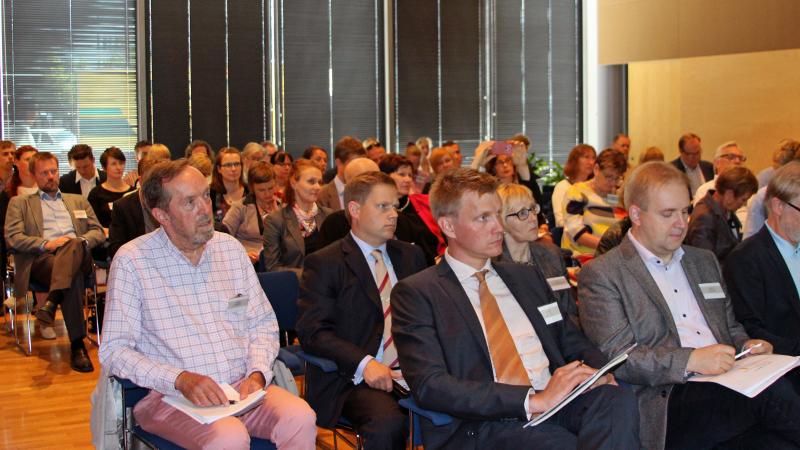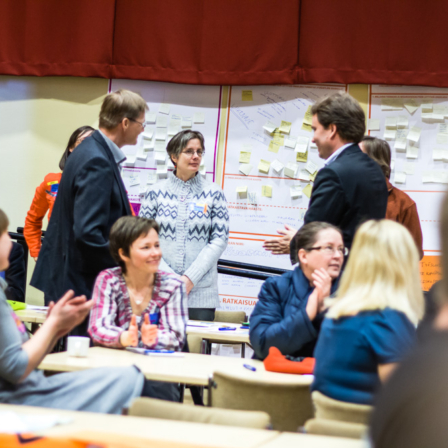Local acceptance of wind farms takes hard work
“What is the problem? People are theoretically in favour of renewable energy, but do not actually want it. Polls suggest that people support wind power, for example, but when someone tries to build a wind farm, people protest.”
This question was posed by Director Jukka Noponen of Sitra, at a discussion event entitled “From NIMBY to YIMBY – local acceptance of wind power”. Sitra has researched the mechanisms of NIMBY thinking, short for “Not In My Back Yard” and which refers to the local resistance towards new projects in their area. Sitra has tried new ways of making attitudes more positive, for example towards wind power. But a lack of acceptance from local communities hinders the production of renewable energy, wind power in particular.

“Overcoming local resistance requires much more effort than that required by legislation,” says Minister Lauri Tarasti who has studied the acceptance of wind power. There should be many ways of gaining acceptance, as one model does not suit every situation. Granting economic compensation is not always realistic, either. For this reason, it is important to include and listen to the locals in a transparent and sincere manner throughout the project’s lifespan.
The disputed noise impact is one of the reasons why wind farms face NIMBY attitudes. Tarasti has researched this matter: “It has been shown that the locals feel less noise impact if they are included in the wind farm project – financially or otherwise.”
Sitra’s Senior Lead Karoliina Auvinen believes that the acceptance of wind farms is also connected to the distribution of financial benefits: “In Germany and Denmark, for example, local ownership has increased social acceptance towards wind farms.”
Tarasti encourages wind farm projects to ensure that they are backed by sufficient acceptance because they will always face opposition – even when they successfully manage to include local people in the planning process. This is why Tarasti calls for statutory measures which would help solve different situations. Some are currently in the preparation stage, for example the measures addressing the effects of noise pollution.
The heavy bureaucracy surrounding wind farms evokes some criticism towards the public administration. According to Jari Suominen, CEO of the wind power company TuuliWatti, bureaucratic wrestling requires so much effort that it prevents dialogue with local people. There are well-known means of improving their attitudes, but not enough resources to apply these means in practice.
In addition to the permit processes, The NIMBY to YIMBY event sparked much discussion about citizens’ rights of appeal. “It looks as if our society’s current permit processes were built to suit those who lodge appeals – and the procedure is actually not very democratic,” says Auvinen. “A single person lodging an appeal can stop a wind farm project at various stages, even if it had the strong support of the majority.”
But Hannele Pokka, permanent secretary at the Ministry of the Environment, used the event to emphasise that the fundamental right of appeal is a vital part of Western legal culture. Those attending the discussion event also came up with several improvements which would benefit both appellants and wind farm constructors, including shorter appeal handling times, limited periods for handling appeals and speedier administrative processes in general.


Recommended